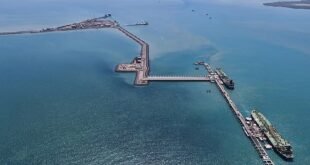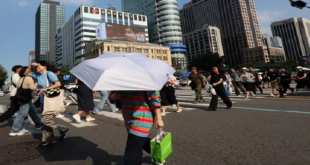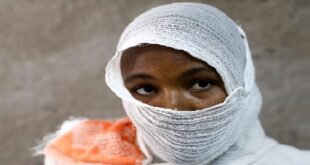27-12-2022
KATHMANDU: Nepal’s new government, led by a former Maoist rebel commander, will try to balance ties with its immediate neighbors China and India for the economic growth of one of the world’s poorest countries, officials of the ruling coalition told media.
 Pushpa Kamal Dahal, who still goes by his nom de guerre Prachanda, surprisingly became prime minister on Sunday after leaving his previous coalition and with the support of the opposition Communist Unified Marxist-Leninist (UML) party and five other smaller groups. Last month’s elections returned a hung parliament.
Pushpa Kamal Dahal, who still goes by his nom de guerre Prachanda, surprisingly became prime minister on Sunday after leaving his previous coalition and with the support of the opposition Communist Unified Marxist-Leninist (UML) party and five other smaller groups. Last month’s elections returned a hung parliament.
UML’s leader and Nepal’s former Prime Minister, Khadga Prasad Sharma Oli, is believed to be pro-China.
Nepal is one of several South Asian countries that India and China seek to influence. India has long considered Hindu-majority Nepal, a Himalayan country of 30 million, a natural ally based on their close historical ties and a long open border.
“We’ll maintain relationships of equi-proximity with both our neighbours,” Narayan Kaji Shrestha, a senior member of Prachanda’s Maoist Centre party who is expected to be a cabinet minister, told media.
“We must immediately focus on containing inflation, maintaining reserves, raising capital expenses, narrowing the trade deficit and lowering interest rates.”
Other party leaders, speaking on the condition of anonymity before a swearing-in of new ministers, echoed Shrestha’s view.
 Beijing and New Delhi have poured billions of dollars in aid and investment into Nepal, which is rich in potential to generate hydroelectric power.
Beijing and New Delhi have poured billions of dollars in aid and investment into Nepal, which is rich in potential to generate hydroelectric power.
Prime Minister Narendra Modi of India, Nepal’s biggest trade and economic partner, was one of the first foreign leaders to wish Prachanda, who has been prime minister twice before.
“The unique relationship between India & Nepal is based on deep cultural connect & warm people-to-people ties,” Modi said on Twitter. “I look forward to further working with you to strengthen this friendship.”
In a Twitter post, a Chinese embassy spokesperson in Kathmandu congratulated Prachanda on his appointment.
Analysts said Nepal’s $40 billion economy, emerging from the COVID-19 pandemic, needed the immediate attention of the new government, which must regain the trust of investors and businesses and boost production.
Inflation is at more than 8%, the highest in six years. Nepal also faces dwindling foreign exchange reserves, with an increasing dependence on imports of basic goods.
Former Finance Minister Yuba Raj Khatiwada, who worked under Oli, said Prachanda must focus on boosting manufacturing products like cement for export and agriculture to substitute imports.
 Deuba, whose Nepali Congress emerged as the single largest party after the November 20 polls, refused to back Prachanda for the prime minister’s job.
Deuba, whose Nepali Congress emerged as the single largest party after the November 20 polls, refused to back Prachanda for the prime minister’s job.
Prachanda’s Maoist Centre party won 32 seats in the 275-member House of Representatives. The UML has 78 seats, and the rest, required for the 138-majority, will be controlled by smaller groups.
The Nepali Congress party will be the main opposition controlling 89 seats.
Prachanda hid out for years in the jungle during Nepal’s 1996-2006 civil war that killed nearly 17,000 people and led to the end of the 239-year-old monarchy.
In 2006, the Maoists gave up their armed revolt, joined a United Nations-assisted peace process and entered mainstream politics. Prachanda served briefly as prime minister in 2008-09, and again in 2016-17. (Int’l Monitoring Desk)
 Pressmediaofindia
Pressmediaofindia




